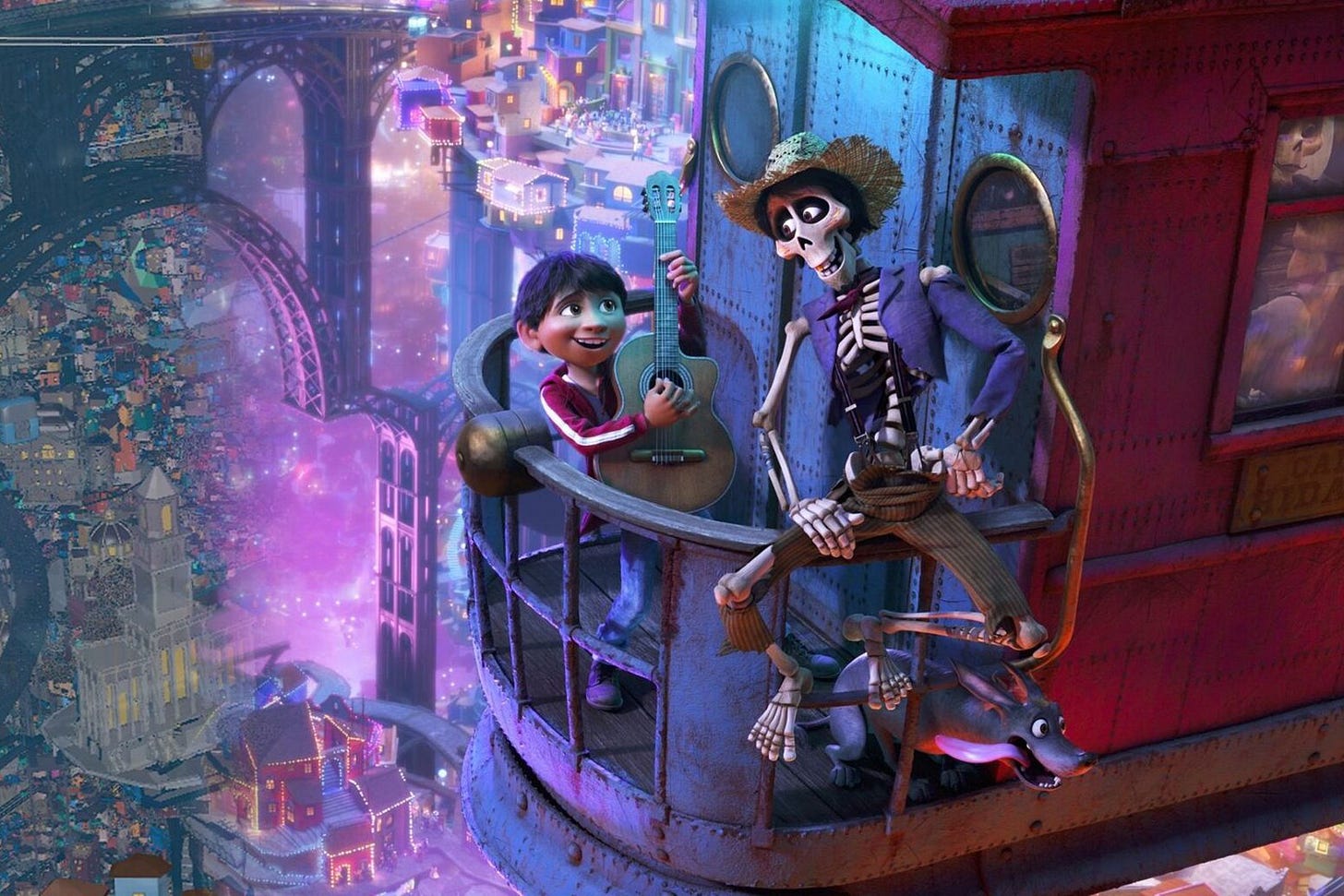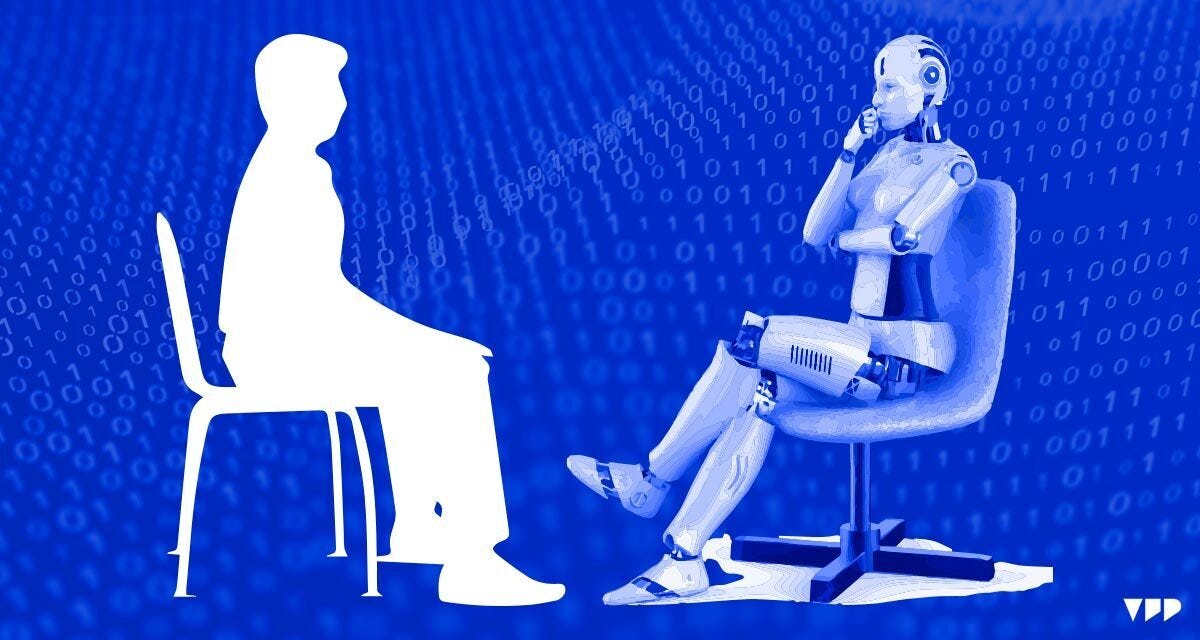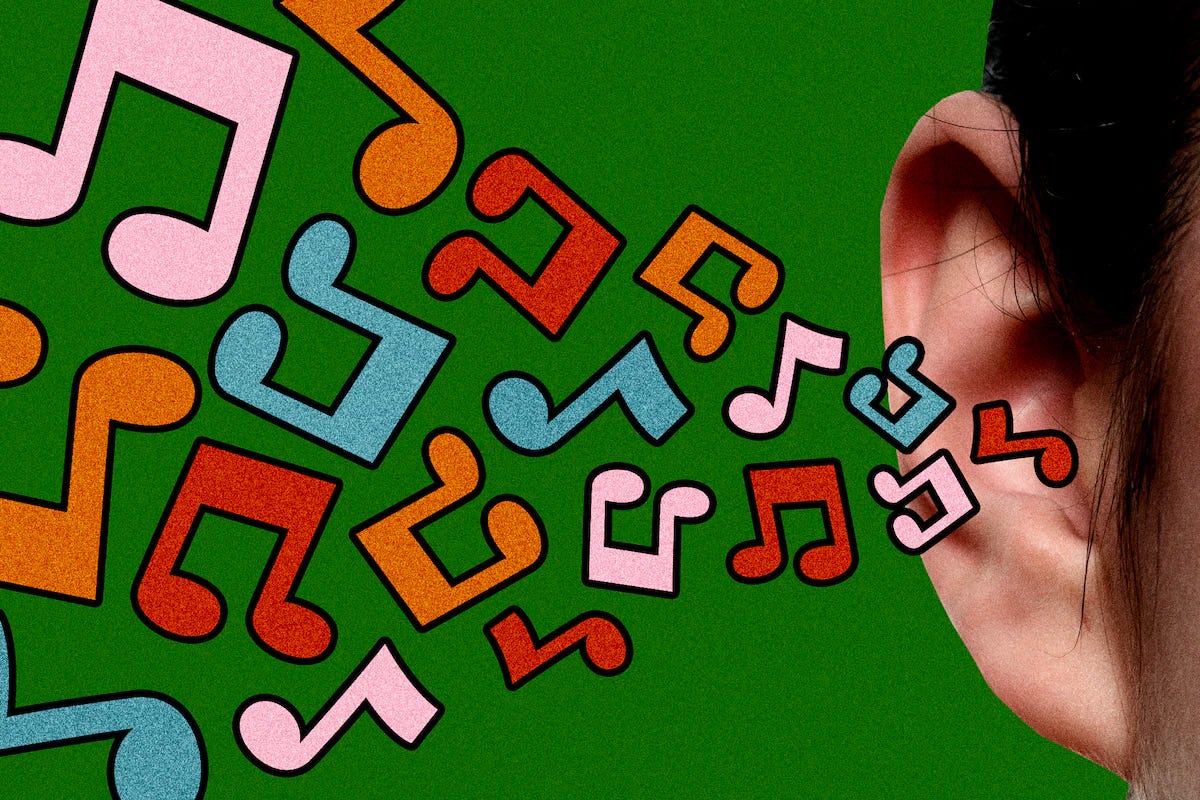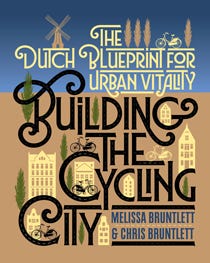Iterate Weekly - Issue 123
This week we're talking about Pixar helping build the Metaverse, AI bots in the job interview process, Billie Eilish powering her shows with the sun, sonic identities, and Building the Cycling City!
Welcome to issue 123 of Iterate Weekly!
Hope you’re all doing well. This is just a friendly reminder that you can always reply directly to these messages or leave a comment on the Substack post. Feedback is highly encouraged and I’m happy to answer any and all questions that come up.
Let’s jump into this week’s stories.
🤖 Tech
Can Pixar save the Metaverse?
It seems like the Metaverse hype has died down around here (and in most places) for good reason. With Meta seeming to be struggling to figure out what exactly they’re looking to create, the scene is ripe for other partners to jump in to help the design of this future virtual world that we’re all expected to be a part of.
Well maybe Pixar is just the company to help design a world that we all actually want to be a part of.
Pixar and a few other companies are creating an alliance to help contribute to the metaverse. It’s specifically called the Alliance for OpenUSD. This group of companies will be tasked with creating all of the 3D-modeled worlds that will become essential for the technology to catch on.
Aside from Pixar, Apple, Adobe, Autodesk, and Nvidia are also onboard. These aren’t exactly mom & pop shops. These are companies that obviously have a ton of experience in creating virtual worlds. The group will look to standardize some of the practices around Pixar’s Universal Scene Description (USD) technology.
Basically, if the metaverse is ever going to take off in a big way, companies will need to develop serious 3D worlds to immerse the user in. As I’ve personally seen with plenty of the current VR apps, this is really difficult for a small team of designers. By creating a standardized framework with established companies, there is a much greater chance of creating the next set of killer experiences to be visited in virtual and augmented reality.
You can only get so excited about an alliance of tech companies forming. There is no real tangible benefit right now, but they are laying the groundwork for the future. As Apple looks to launch their new Vision Quest Pro headset in the coming months, it’s going to be extremely important to deliver “must-see” experiences to get people to purchase the device. It may take a little while, but I’d be willing to place a bet on companies like Pixar and Adobe powering the future environments that we’ll experience in headsets created by Apple and others.
Will Meta be able to keep up with this new alliance? I’m starting to get excited again for the VR/AR wars!
🎓 Education/Productivity/Work
Can you impress an AI to land that new job?
Job interviews are stressful. There is really no other way to put it. But what if you also had to win over an AI chatbot before you even spoke to a potential human new employer?
Yes, it’s true. AI chatbots are changing the way we interview for jobs.
You can see how this would be appealing to companies who are hiring. They are able to save time and presumably money by outsourcing much of the recruiting and vetting process to AI bots. Why have that initial phone call with a candidate when a series of very pointed chatbot questions can unearth the same information?
But can it? How many of us have landed a job after making a real human connection with the hiring manager? Or on the flip side, I know I’ve been qualified for jobs that I could have excelled in but I just didn’t gel with the personality of the person I was interviewing with.
This could open up a whole can of worms about ethical hiring practices. And it could change the types of interview prep that candidates practice. Impress an AI chatbot may require a whole different set of skills than impress a human hiring manager.
Companies like McDonalds, Wendy’s, CVS Health, Lowe’s, Sony, Dell, and Sears are some big examples who are already using AI chatbots in the interview process. You’d have to assume that this will become even more common in the next few years.
If you’re looking for a new job maybe it’s time to start practicing with ChatGPT rather than having a roommate or family member help you out with a mock interview.
♻️ Health & Environment
Bille Eilish powers her shows with a solar farm
This story comes on the heels of something I wrote about a few months ago. I thought it was a big deal when I read about the sustainable practices of the latest ColdPlay tour.
But Billie Eilish was not to be outdone on her recent Lollapalooza set. She created a proper solar farm to power her performance.
The temporary installment of solar panels was done in collaboration with a non-profit company called Reverb who has also helped artists like Maroon 5 and Harry Styles cut down on the carbon footprint of their tours.
While it may come off as just a greenwashing publicity stunt to some, these are the examples that will help make operations like this more commonplace. While it’s great to install solar panels on your own tour, it has more meaning when you’re at a festival like Lollapalooza. Not only do you set an example for all of the other bands and production teams at the festival, but you also have a much larger audience who aren’t there just to see your music.
Sure, plenty of festival goers probably didn’t know or didn’t care that the sun was powering Billie’s set. But kudos to her for doing something like this on a big stage and hopefully we see more of this at future festivals where artists will start to feel self-conscious if they aren’t looking for sustainable alternatives.
🛍 Grab Bag
Brand jingles are dead, “sonic identities” are here to stay!
I love a good marketing buzz word.
Until recently, I wasn’t familiar with the term “sonic identity”. Maybe you’ve never come across the phrase either, but you’ve certainly been exposed to it. It refers to the familiar sounds that are associated with brands. Think of them like very condensed commercial jingles. It’s the sound that plays at the end of a McDonald’s commercial or the sound your smart speaker emits when you ask it a question.
In a world of short attention spans, they’re the way that brands are making quick connections with their customers. Gone are the days of the two-minute jingle that plays through the entirety of a commercial. No one has time for that. But everyone has time for a few recognizable tones that turn us into Pavlov’s dog when we hear them.
Did you even remember that Justin Timberlake actually wrote a full song called “I’m Lovin’ It” twenty years ago? No, unless you are the most hardcore of JT fans you just know the important few notes that McDonald’s has been using for years to promote their brand.
Part of me misses a classic brand jingle. I’m sure there are some that you can remember from your impressionable youth. It really is amazing how they’re able to stick with you. But this next generation won’t be singing jingles, they’ll just be humming several tones that have no context at all aside from being attached to a brand.
I encourage you all to be on the look out for all of the sonic identities that are no found in our daily lives!
💬 Quote of the Week
"Life is like a ten speed bicycle. Most of us have gears we never use."
-Charles M. Schulz
📕Content Review
Building the Cycling City
This week I am recommending the fantastic book “Building the Cycling City” by Melissa & Chris Bruntlett.
If you’ve been reading my work for a while, you know that I’m bullish on micromobility. Anytime we can run an errand using something other than a car, I’m all for it. And this book has become almost required reading for anyone who has an interest in sustainable transport and the future of cycling.
It’s told through the lens of a husband and wife duo who moved from Canada to The Netherlands and were captivated by the land of the bicycle. The book examines some of the trends that have emerged in the last fifty years or so that have transformed The Netherlands into arguably the most bikeable nation on earth.
No, the Dutch haven’t always been this way. Some of these things happened by luck but there are also stories of leaders who pushed to make changes to infrastructure to create more livable urban centers that give more freedom and power to pedestrians and cyclists.
And for those of us North Americans who think that we are doomed to always be living in car-dominant regions the book gives hope! Many cities in the US are like Amsterdam was in the 80s. Just starting to understand the potential of cycling infrastructure. It may take the US 40 years (if we’re lucky) but it’s absolutely possible to see a future where we have the cycling culture of the Dutch.
If you’re a cyclist or just like to nerd out about urban planning and infrastructure, you will love this book. I particularly appreciated the chapter on San Francisco and the greater Bay Area. I’ve been cycling regularly in the area for nearly twenty years and things have improved. I’m excited to see more Americans learn from the Dutch to make cycling a more viable option for a greater swath of the country.
Thanks for reading, I’ll see you next week!
Hey! Could you use some help establishing healthy habits? Do you have a big project or new business that you want to get off the ground but could use some advice? Maybe you could benefit from hiring me as your coach. If you’re interested, read more about my coaching services here, or go ahead and book some time on my calendar to discuss further.
Iterate is free today. But if you enjoyed this post, you should let me know that this writing is valuable by pledging a future subscription. You won't be charged unless I enable payments at some point in the future. Think of it like an IOU in a tip jar.






If you're into explorations of sonic identities, you should totally check out the podcast Twenty Thousand Hertz. They have done amazing deep dives into the sounds of HBO, Microsoft, and others.
HBO: https://open.spotify.com/episode/6NwuINMieUKf5aXc5IXRtC?si=Yh8V8mHEQPSKDfXvE0A2VQ
Microsoft: https://open.spotify.com/episode/2IVq6aYzQ9IvQpetBuNcmi?si=AhoiFkuwQrmXL1NIxbm97Q